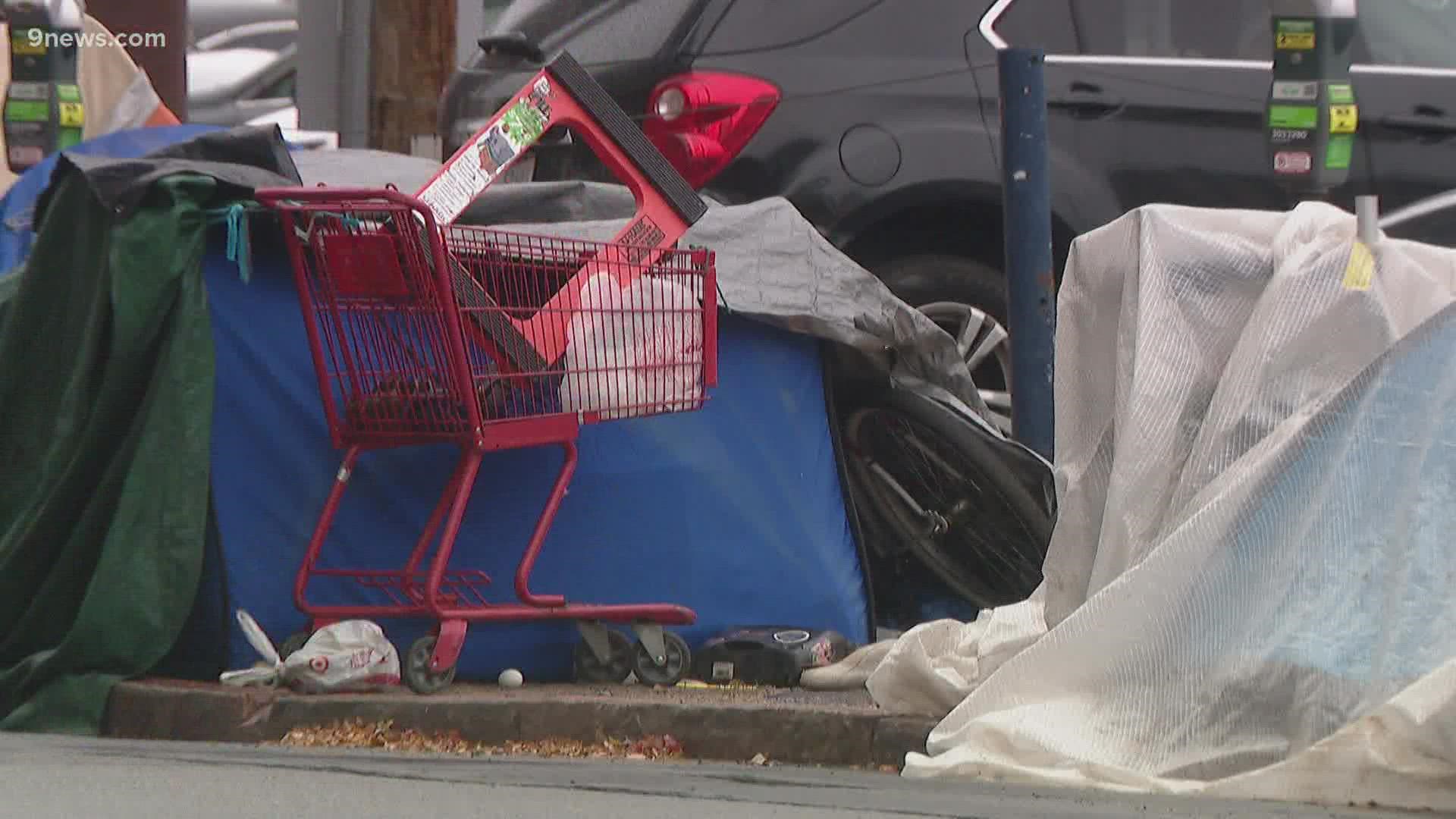AURORA, Colo. — Aurora’s city council signaled they would be in support of a camping ban Monday night, voting in favor of the ordinance during its first reading.
The measure would allow the city to do something neighboring Denver already does -- remove tents and other items from public property.
The sweeps are often sold as attempts to get people off the streets and into services, but several researchers who’ve studied these laws say they do little to break the cycle of poverty.
“They are not implemented in many parts of the country because they’re shown not to work,” said Nantiya Ruan, a law professor at the University of Denver who has studied, with her students, the impact of camping bans and other laws related to homelessness in the Denver metro area.
“We found that the cities were spending far more on enforcing the ordinances as opposed to actually helping those who are homeless,” she said.
“I think it stems from people who are very uncomfortable with visible poverty. Until we sort of grapple with that, I think we’re going to see a lot of outcry from people saying ‘do something about this,’ and it’s easier to pass an ordinance and criminalize it than to actually find ways to help people who are unhoused.”
Lauren Dunton, who has researched encampments for the federal government, said enforcement actions that suddenly move people away just move them elsewhere.
“It’s not really solving or addressing the issue of unsheltered homelessness in a community," she said. "It’s really moving the problem from one location to another."
Dunton said the best way to help people in these situations is to connect them with service providers who can help them secure the documents they need to find jobs and housing.
“In some communities, outreach workers are spending months building relationships,” she said. “If they’re displaced quickly, they often lose track of where those people have gone and those relationships are broken and then they can’t work with them to get them into housing.”
Dunton said people staying in these encampments are often people who once lived in homes in the same community.
“They are wanting to stay in their neighborhoods and aren’t able to afford options,” she said.
A spokesman for the city of Aurora said the city is 7,500 to 8,500 units short when it comes to affordable housing.
Dunton said in other communities without such rules, the goal of eliminating homeless encampments remains.
“The end goal is still to move people from encampment settings," she said. "But it’s to do it in a way that connects people with housing opportunities and services.”
SUGGESTED VIDEOS: Full Episodes of Next with Kyle Clark

